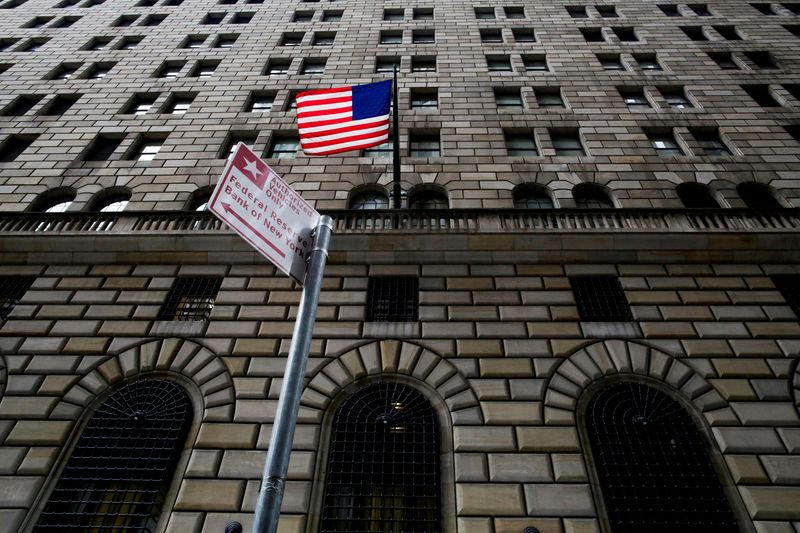By Michael S. Derby
NEW YORK (Reuters) – The banks most reluctant to tap the U.S. central bank’s discount window to shore up their capital are in fact those who face the highest failure risk, according to new research from the New York Federal Reserve that turns the notion of bank emergency borrowing stigma on its head.
The stigma in question is the long-running belief that when a bank borrows from the Fed’s long-running emergency lending discount window, it will be perceived by others to be in trouble and face challenges as a result. To avoid those perceptions, banks will instead avoid the Fed, which in turn increases the risk that affected banks may find themselves in even deeper trouble.
Stigma worries have been a long-running worry of central bankers who have encouraged banks to tap the discount window without fear. But even so, in the spring of 2023, amid a fast-moving banking panic, the Fed stood up an entirely new lending facility to ensure banks could borrow without fear, an explicit acknowledgement that stigma risks remain a concern.
The New York Fed paper, which was posted on the regional Fed bank’s website on Thursday, argues that based on borrowing costs, it appears that stigma is gravitating to troubled banks that avoid discount window borrowing relative to those who take the Fed’s loans.
“We find stigma to be persistent and driven by a bank’s financial weakness,” the study’s authors write. “Our results suggest that experiencing stigma is more informative about a bank’s failure risk than (discount window) borrowing, both in normal times and when financial markets are stressed.”
“The probability of failure among (discount window) borrowers was in fact lower than the (unconditional) failure probability among all banks,” the paper said.
The study measured stigma as a function of borrowing costs. Among the institutions where stigma issues are greatest, for banks with assets of less than $50 billion, higher private market borrowing rates cost these firms collectively $500 million in excess interest costs relative to where they could have borrowed from the Fed in the decade ending in 2024.
The paper notes that banks that are willing to borrow from the Fed should be rewarded, given that doing so makes them stronger relative to those who don’t. “Our results suggest the opposite of stigma should occur: Instead of being stigmatized, a (discount window) borrower should be given advantageous terms because it is less likely to fail than the average bank,” the researchers wrote.
U.S. central bankers have been trying to ensure all banks are ready to use the discount window, amid guidance that using the facility will not signal to regulators the affected institutions are in trouble.

































